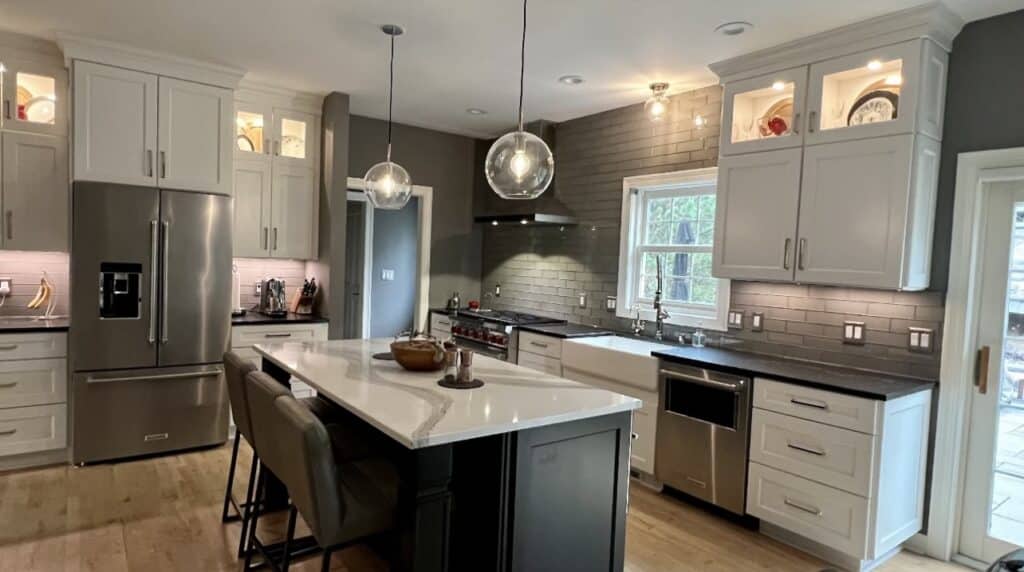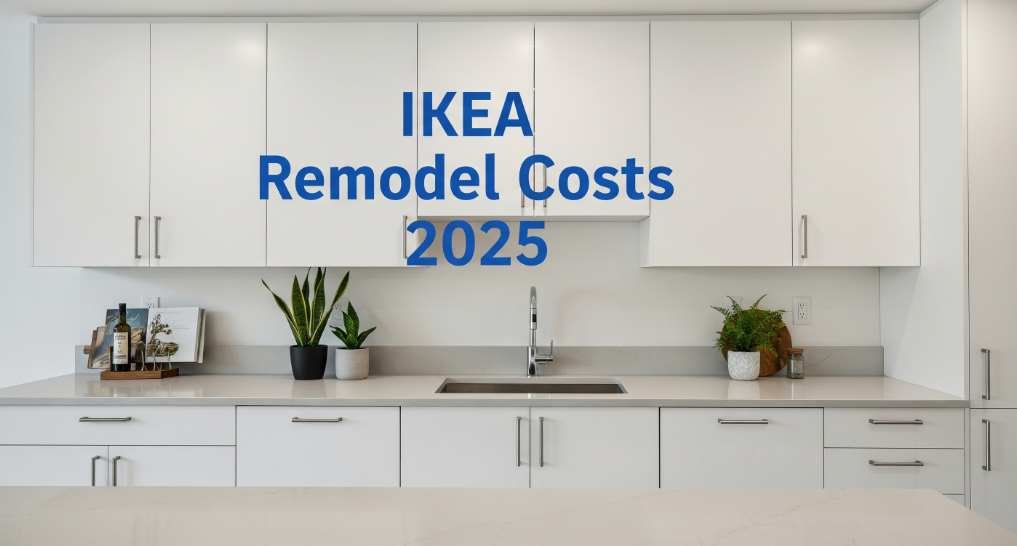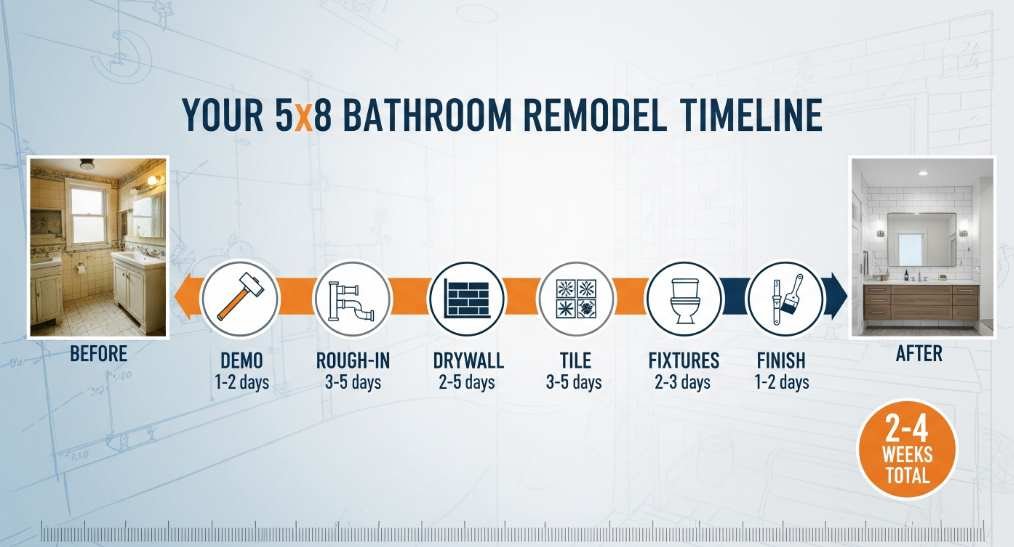Table of Contents
Toggle
To cut down on kitchen renovation stress, plan your meals and set up a temporary kitchen space in advance. Also, always have a clear and open line of communication with your contractor to avoid any misunderstandings.
Although renovating your kitchen can be an exciting journey towards creating the heart of your home exactly as you’ve dreamed. However, without the right planning and approach, it can quickly turn into a source of stress. In this comprehensive guide, we delve into effective strategies and practical tips to navigate the kitchen renovation process smoothly, ensuring that you keep the stress at bay and enjoy the transformation of your kitchen space.
Understanding the Root Causes of Renovation Stress
Before jumping into solutions, it’s crucial to understand what typically causes stress during kitchen renovations. By identifying these triggers early, you can take proactive steps to mitigate them.
Strategic Planning: The First Step to Stress-Free Renovation
The Power of a Well-Defined Plan
A detailed plan is your roadmap through the renovation process. It helps you understand your goals, budget, and timeline, making it easier to navigate decisions and unexpected challenges.
Budgeting Wisely: Keeping Finances in Check
Creating a Realistic Budget
One of the major stressors is the financial aspect of renovation. Learn how to set a realistic budget that includes a buffer for unexpected costs, which can help prevent financial strain.
Choosing the Right Contractors: A Crucial Decision
Vetting and Selecting Contractors
The success of your renovation heavily relies on the professionals you choose. Discover tips for finding reliable, skilled contractors who can bring your vision to life while minimizing stress.
Effective Communication: The Key to a Smooth Renovation
Maintaining Open Lines of Communication
Clear, ongoing communication with your renovation team can prevent misunderstandings and ensure that your project stays on track.
Design Decisions: Balancing Aesthetics and Functionality
Navigating Design Choices
With countless options available, making design decisions can be overwhelming. Learn strategies for making choices that reflect your style while enhancing the functionality of your kitchen.
Managing Your Expectations: The Art of Flexibility
Adapting to the Renovation Process
Understanding that not everything may go as planned allows you to adapt more easily to changes and reduce stress.
The Psychological Impact of Renovation
Staying Mentally and Emotionally Balanced
Renovations can be mentally and emotionally taxing. We’ll explore ways to keep your well-being in focus throughout the process.
Temporary Kitchen Setups: Navigating Daily Life During Renovation
Creating a Functional Temporary Kitchen
Living without a fully operational kitchen can be challenging. Find out how to set up a temporary kitchen space to minimize disruptions to your daily life.
Dealing with Dust and Noise: Mitigation Strategies
Keeping Your Living Environment Bearable
Construction can be messy and noisy. Learn tips for keeping your living space as clean and quiet as possible during renovations.
Scheduling and Timelines: Setting Realistic Expectations
Understanding the Timeline
A clear timeline helps manage expectations and reduces anxiety about project completion. Discover how to create a realistic schedule for your renovation.
Involving Family Members: A Team Effort
Making Renovation a Family Project
Involving your family in the renovation process can help distribute responsibilities and make the experience more enjoyable for everyone.
The Emotional Rollercoaster of Renovating
Preparing for Ups and Downs
Renovations can be an emotional journey. We’ll discuss how to prepare for and navigate the highs and lows.
Celebrating Milestones: Keeping Morale High
Recognizing Progress
Celebrating the completion of milestones can boost morale and provide a sense of accomplishment throughout the renovation process.
Post-Renovation: Enjoying Your New Kitchen
The Light at the End of the Tunnel
After the dust has settled, it’s time to enjoy the fruits of your labor. We’ll share tips for settling into and making the most of your newly renovated kitchen.
Reflecting on the Experience: Lessons Learned
Gaining Insight for Future Projects
Every renovation project offers valuable lessons. Reflecting on what you’ve learned can help make future home improvement projects even smoother.
Conclusion
Kitchen renovations don’t have to be a source of stress. With careful planning, clear communication, and a positive mindset, you can navigate the process smoothly and enjoy the transformation of your kitchen. Remember, the key to a stress-free renovation lies in preparation, flexibility, and keeping the end goal in sight. By following these tips and strategies, you can look forward to a beautiful, functional kitchen that reflects your personal style and meets your family’s needs.
FAQs
How Can I Minimize Disruptions to My Daily Life During a Kitchen Renovation?
Set up a temporary kitchen space away from the renovation area. Plan meals that don’t require a stove, and consider the occasional takeout to ease the process.
What Are Some Tips for Setting a Realistic Renovation Budget?
Include a 10-20% contingency fund in your budget for unforeseen expenses. Research costs thoroughly and get multiple quotes to ensure your budget is grounded in reality.
How Do I Choose the Right Contractor for My Kitchen Renovation?
Look for licensed and insured contractors with good reviews. Ask for and reach out to references, and ensure their communication style matches yours.
What Should I Do if the Renovation Project Goes Over Budget or Schedule?
Prioritize tasks to cut or adjust without compromising your vision. Communicate openly with your contractor to find solutions and adjust the project plan as necessary.
How Can I Maintain a Good Relationship with My Renovation Team?
Keep communication open and respectful. Regularly discuss project progress and express any concerns calmly and constructively.
What Are the Best Ways to Deal with Renovation Dust and Noise?
Seal off the renovation area with plastic sheeting. Use air purifiers to manage dust, and consider scheduling work during hours that minimize disruption to your daily routine




